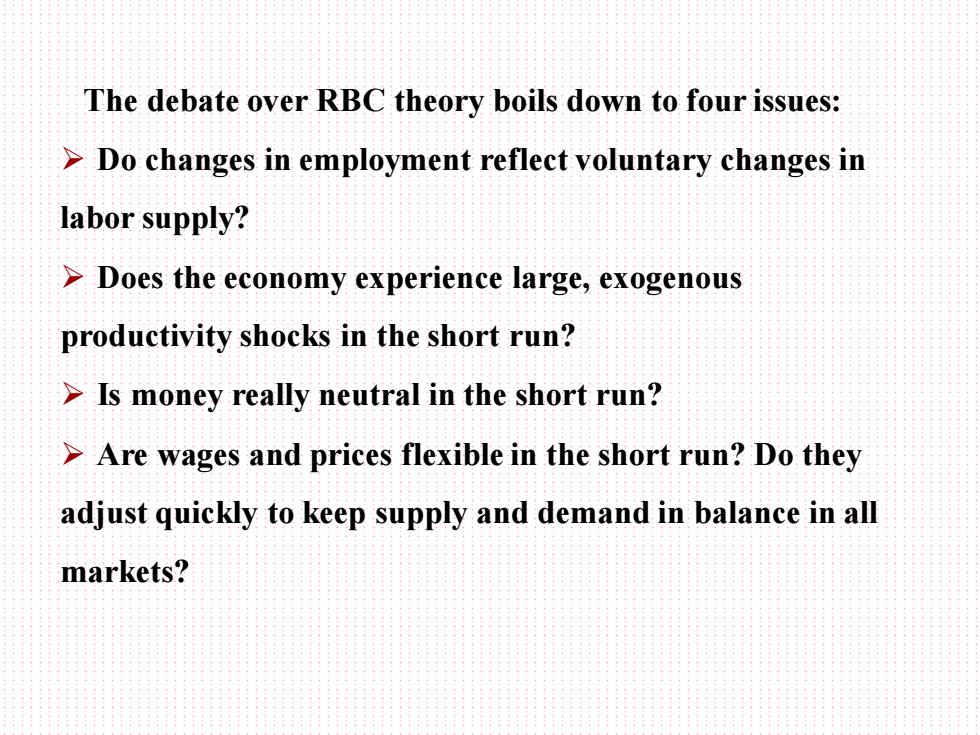
The debate over RBC theory boils down to four issues: Do changes in employment reflect voluntary changes in labor supply? >Does the economy experience large,exogenous productivity shocks in the short run? >Is money really neutral in the short run? >Are wages and prices flexible in the short run?Do they adjust quickly to keep supply and demand in balance in all markets?
The debate over RBC theory boils down to four issues: ➢ Do changes in employment reflect voluntary changes in labor supply? ➢ Does the economy experience large, exogenous productivity shocks in the short run? ➢ Is money really neutral in the short run? ➢ Are wages and prices flexible in the short run? Do they adjust quickly to keep supply and demand in balance in all markets?
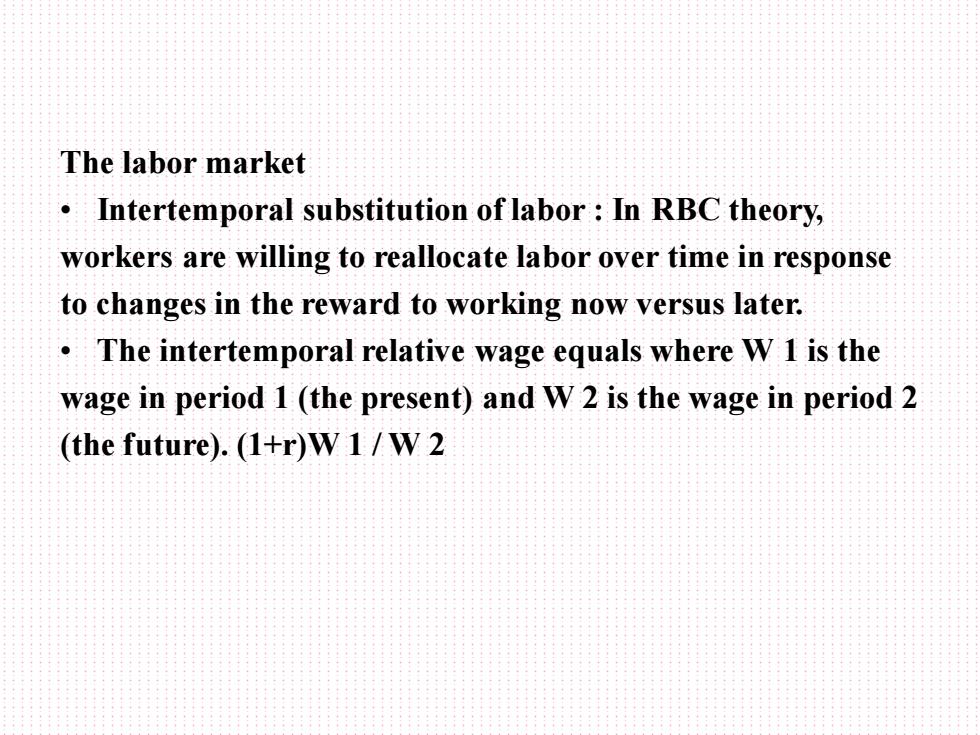
The labor market Intertemporal substitution of labor In RBC theory, workers are willing to reallocate labor over time in response to changes in the reward to working now versus later. .The intertemporal relative wage equals where W 1 is the wage in period 1(the present)and W 2 is the wage in period 2 (the future).(1+r)W 1/W2
The labor market • Intertemporal substitution of labor : In RBC theory, workers are willing to reallocate labor over time in response to changes in the reward to working now versus later. • The intertemporal relative wage equals where W 1 is the wage in period 1 (the present) and W 2 is the wage in period 2 (the future). (1+r)W 1 / W 2
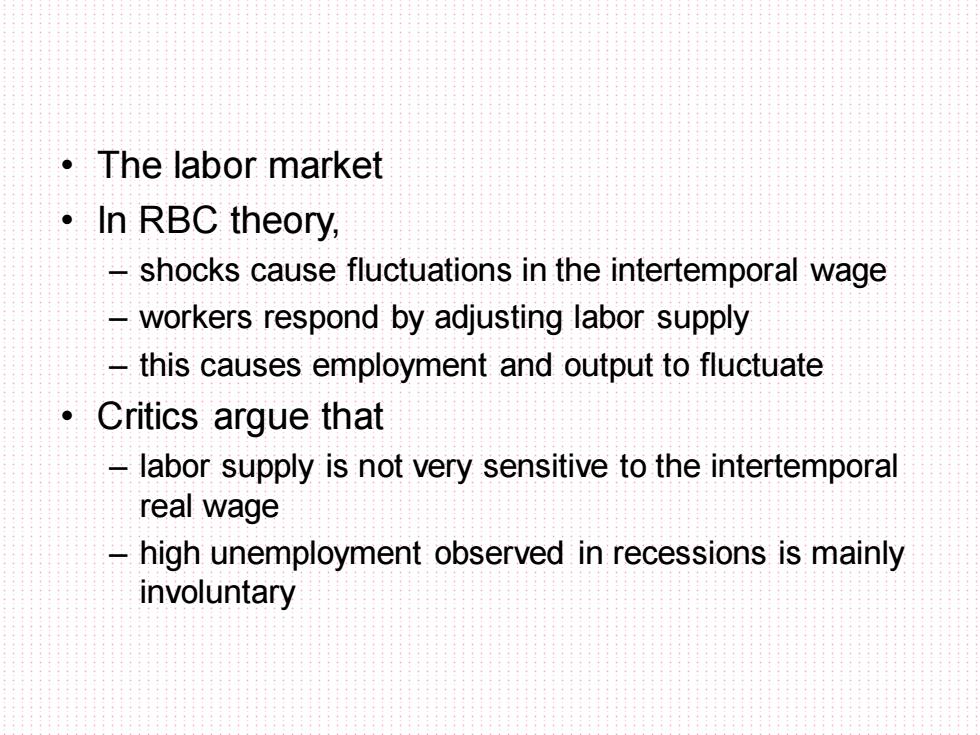
·The labor market ·In RBC theory,. -shocks cause fluctuations in the intertemporal wage -workers respond by adjusting labor supply -this causes employment and output to fluctuate Critics argue that -labor supply is not very sensitive to the intertemporal real wage -high unemployment observed in recessions is mainly involuntary
• The labor market • In RBC theory, – shocks cause fluctuations in the intertemporal wage – workers respond by adjusting labor supply – this causes employment and output to fluctuate • Critics argue that – labor supply is not very sensitive to the intertemporal real wage – high unemployment observed in recessions is mainly involuntary
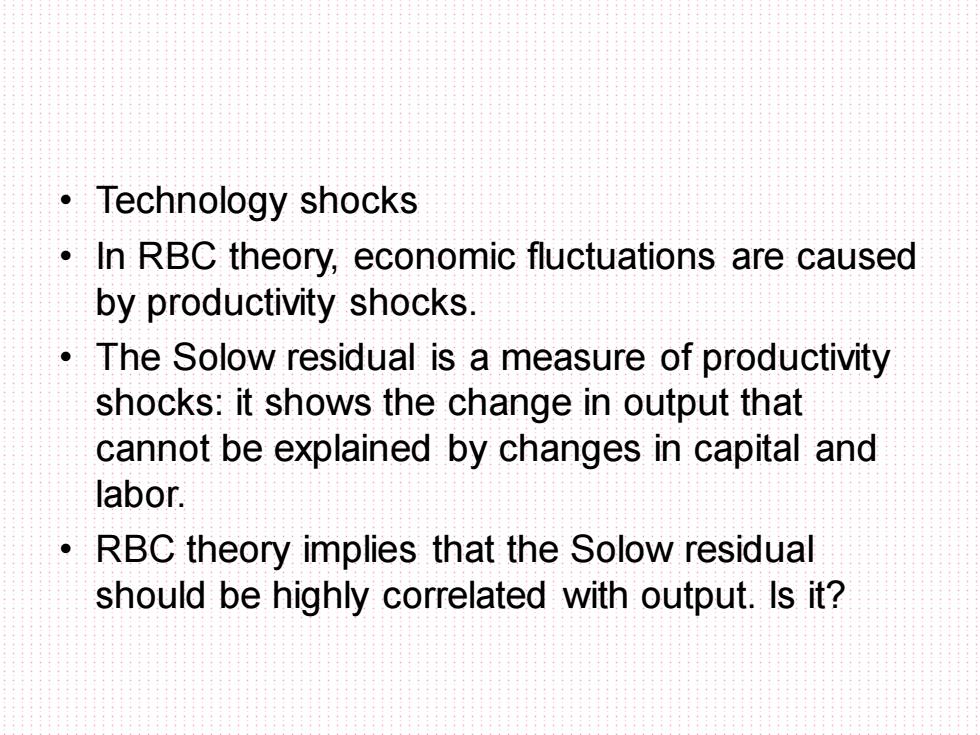
·Technology shocks In RBC theory,economic fluctuations are caused by productivity shocks. The Solow residual is a measure of productivity shocks:it shows the change in output that cannot be explained by changes in capital and labor. RBC theory implies that the Solow residual should be highly correlated with output.Is it?
• Technology shocks • In RBC theory, economic fluctuations are caused by productivity shocks. • The Solow residual is a measure of productivity shocks: it shows the change in output that cannot be explained by changes in capital and labor. • RBC theory implies that the Solow residual should be highly correlated with output. Is it?
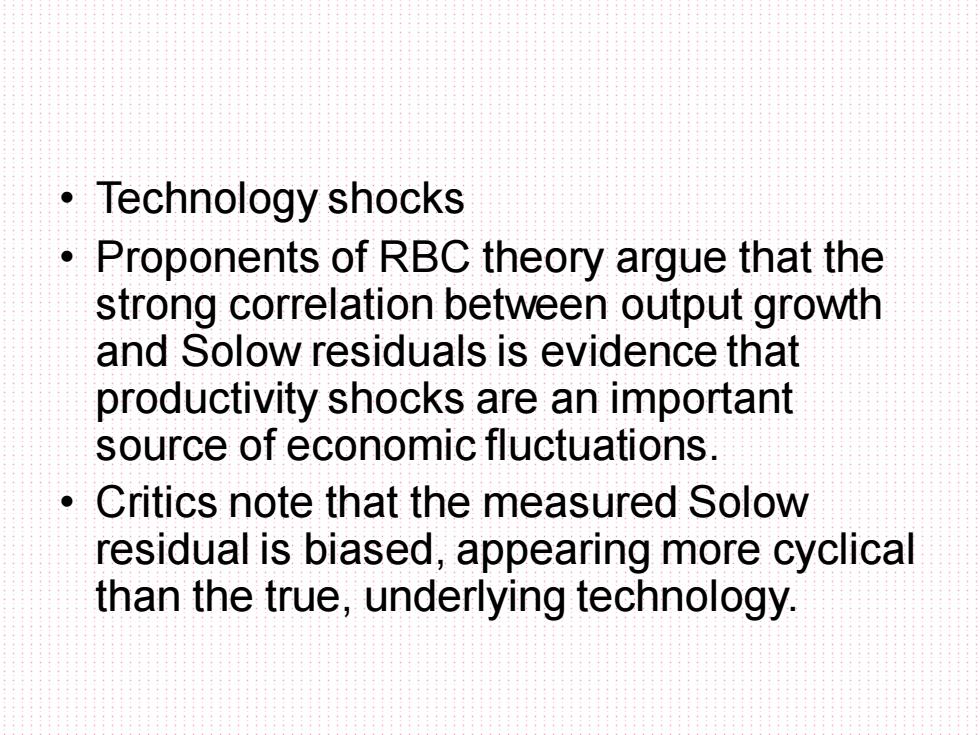
·Technology shocks Proponents of RBC theory argue that the strong correlation between output growth and Solow residuals is evidence that productivity shocks are an important source of economic fluctuations. Critics note that the measured Solow residual is biased,appearing more cyclical than the true,underlying technology
• Technology shocks • Proponents of RBC theory argue that the strong correlation between output growth and Solow residuals is evidence that productivity shocks are an important source of economic fluctuations. • Critics note that the measured Solow residual is biased, appearing more cyclical than the true, underlying technology